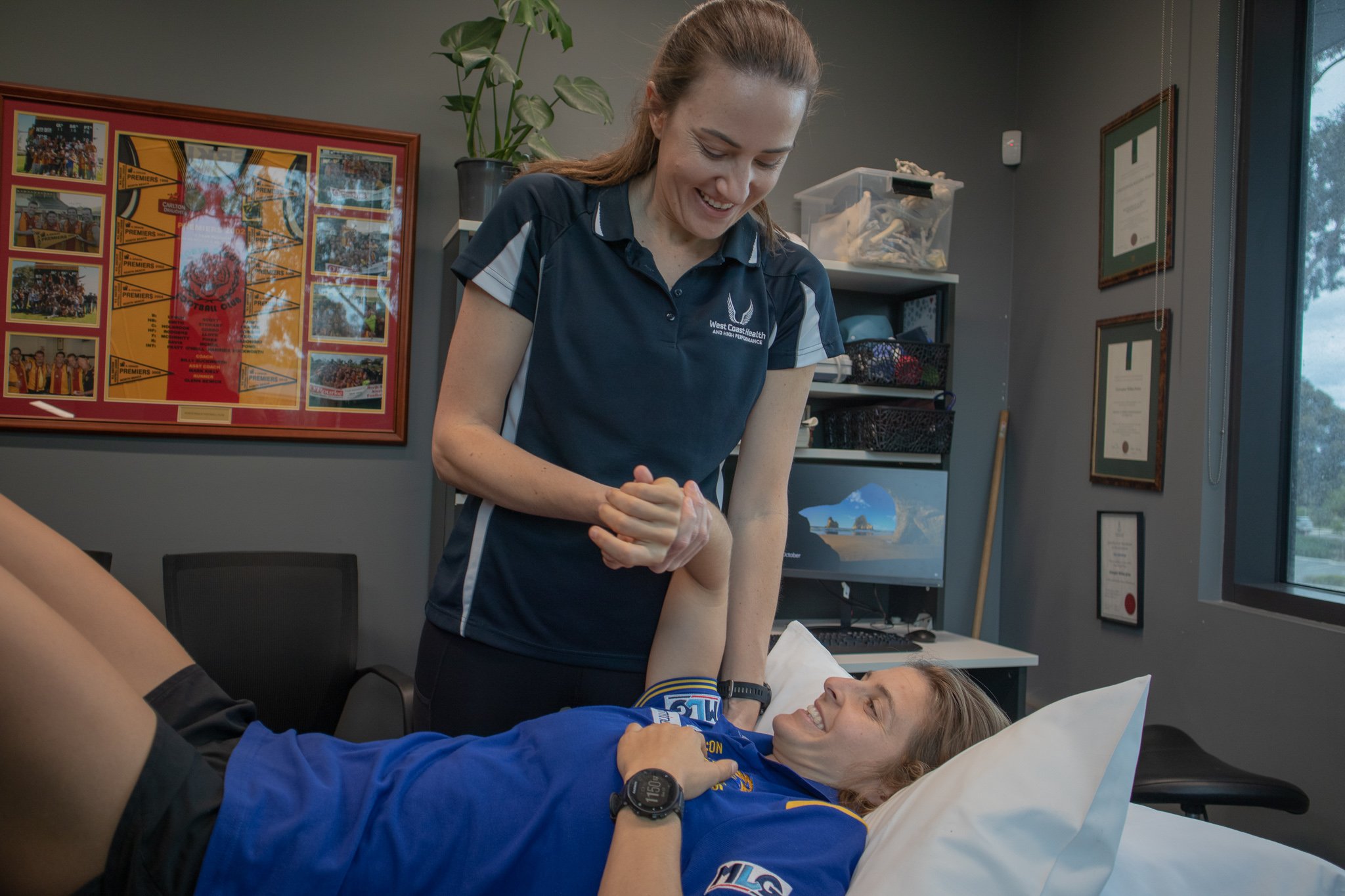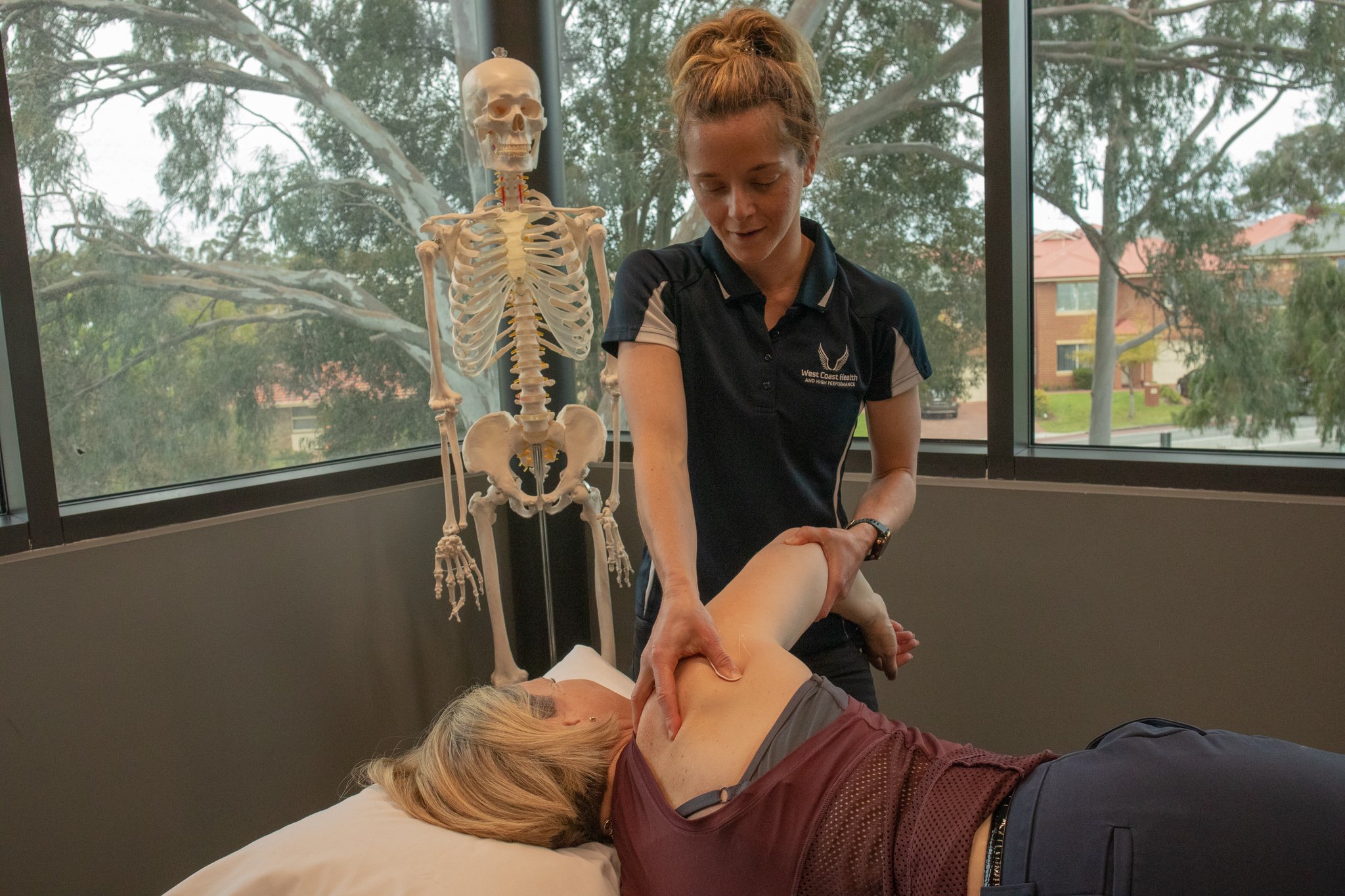Shoulder Pain
Shoulder pain can occur from an injury such as a heavy fall on the arm. In these situations, if the pain is severe and there is a loss of power in the arm, it is important to seek medical attention to rule out a fracture or tendon rupture.
Shoulder pain can also occur from repeated or sustained use – especially when the shoulder isn’t conditioned to the task – such as cutting the hedge over-head, and sporting activities such as tennis, swimming, cricket and throwing sports. The resulting pain can be severe due to inflammation and sensitivity of the shoulder structures without there necessarily being structural damage. There is usually no need to scan the shoulder if there is no history of trauma.
Risk Factors for Shoulder Pain
Shoulder pain is a term that relates to pain around the front, sides and back of the shoulder. It can also extend into the arm and neck. Shoulder pain is very common and it can affect up to 70% of people at some time in their lives. It can be very limiting and distressing, affecting many aspects of daily living such as sleeping, self-care, household activities, work and recreation.
Common diagnostic labels for shoulder pain are rotator cuff tear or rupture, rotator cuff tendinopathy, labral tear, subacromial bursitis, subacromial impingement, shoulder arthritis, frozen shoulder/adhesive capsulitis and acromio-clavicular joint pain. Additionally, the neck and its associated structures can also refer pain into the shoulder region.
Assessment of Shoulder Pain
There is strong evidence that physiotherapy is effective as the first line of shoulder pain once serious injury such as a fracture or traumatic tendon rupture has been ruled out. If you have developed shoulder pain over time we can help identify the key contributing factors and build a plan to get you back to full capacity. We first undertake a comprehensive history in order to hear your story, how the shoulder pain began, how it impacts on all aspects of your life, and to understand your goals with physiotherapy.
We will also screen for serious causes of shoulder pain and can refer you onwards for imaging or additional review if required.
We will then perform a comprehensive examination of the shoulder and surrounding regions. We are most interested in the postures and activities that you find restricting.
This includes an assessment of:
The sensitivity of the structures to touch, move and load;
The mobility of the shoulder, neck and thorax, and the ability to relax the muscles in the region
The strength and endurance of the shoulder muscles.
Based off your history and clinical assessment, our Physiotherapists are able to analyse all the information to formulate a diagnosis for you shoulder pain.
Treatment of Pain
From the clinical assessment our Physiotherapists at West Coast Health will then explain to you in simple language, where the pain is coming from, the factors that are contributing to your pain, and discuss the best treatments options available. We will always work with you to develop an individualised management plan that is aimed towards your goals.
Physiotherapy management of shoulder pain may involve a range of strategies to assist with things such as getting your shoulder moving, reducing pain and getting it stronger. This may involve hands-on therapies for a short period of time, but it will always involve exercise and self-management strategies.
It is also important to know that it is safe to get physiotherapy treatment even in the presence of the following diagnoses: rotator cuff tear, rotator cuff tendinopathy, labral tear, subacromial bursitis, subacromial impingement, shoulder arthritis, frozen shoulder and acromio-clavicular joint pain.
Shoulders need movement and strength to stay healthy, so setting up a graduated plan to get active is very important.
Other strategies known to be effective in treating shoulder pain include: improving sleep, stress management and engaging in regular physical activity. In some cases where shoulder pain is very distressing and disabling, working with other health-care practitioners may also be important.



